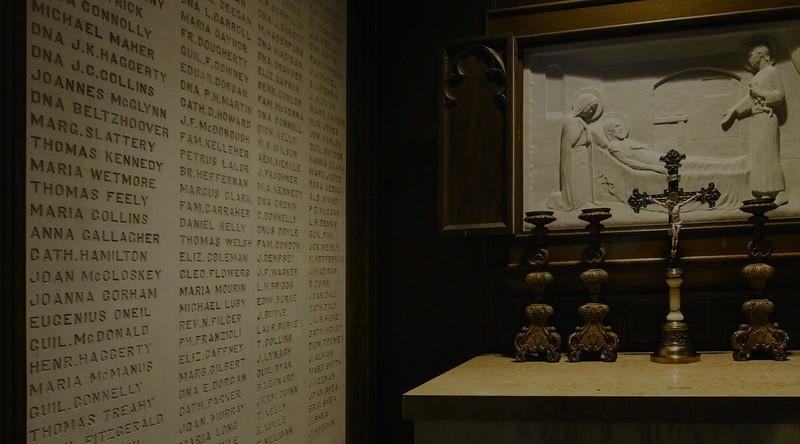Bonus tu et beneficus
You are good and you do good
Our Holy Father Dominic wanted his order to be poor. He wanted us to live by the words of Christ, “If you wish to be perfect, go, sell what you have and give to the poor . . . Then come, follow me” (Matt 19:21). This evangelical poverty, lived in imitation of Christ and his apostles, frees its adherents from the distractions of material wealth and directs them towards the things of the spirit. It instills in us a lively trust in the Lord, believing that the One whose eye is on the sparrow will not fail to provide for those who have left everything to follow him (Matt 6:26).
But why write about poverty today? It is because, today, the Order of Preachers celebrates its Anniversary of Deceased Friends and Benefactors. In addition to our daily and weekly Masses, Rosaries, and other prayers, we set aside this day each year to pray for the souls of all those who have made our life of evangelical poverty possible. From the 13th-century woman who fed hungry friars bread and cheese to the man who donates donuts to the student brothers; each is remembered and prayed for with gratitude today.
Gratitude is certainly the response due to those who have, in any way, provided for our way of life. But the relation between benefactors and those who receive their charity tends to become a bit muddied by human weakness. In fact, the only time our Lord mentions benefactors, it is not in a positive light. He tells the apostles that though the gentile kings use their benefactions to lord over others, it shall not be so among his followers (Luke 22:25). Today, our epoch that values equality and independence is ill at ease with the inequality and dependence inherent in the relationship of benefaction. We have a certain feeling of shame in asking someone else to supply for our living, and so we reduce the fraternal, loving gift of charity to an impersonal transaction to avert any sense of humiliation.
But in my experience speaking with and thanking some of our donors I have realized that our relationship with our benefactors is not humiliating, but humbling.
One of the phrases I most often hear in these conversations is the assertion that “God has been so good.” I have realized that the support our benefactors provide is a grateful echoing of the love God has shown to them. Their magnanimity flows out, not as the payment of a debt, but as a participation in God’s perfect care for his children. This direct connection between God’s goodness and our form of life is humbling, and it has instilled in me a rejuvenated reverence for my Dominican vocation.
We, for our part, clearly see our benefactors’ role as instruments of God’s providential care for us. The support they provide out of their own insecure means, is a reminder of our radical dependence on God for all things and the fraternal unity of the body of Christ. In these humbling realizations lies the redemption of benefaction. When each recognizes that he cannot pay the debts he owes to God, the clinical transactionality of benefaction is dissipated and we return Christian charity to its proper place.
But we are left with the question of how to express our gratitude. How, from our slender means, are we to render to both God and our benefactors proper thanks? My mind is drawn to the unseasonable poem, “In the Bleak Midwinter.” The narrator wonders what gift can be properly given to one to whom we owe everything: “What I can I give Him, / Poor as I am?” “Yet what I can I give Him,” she concludes, “Give my heart.” So, today, we give what we can to you—our friends and benefactors—and to God. We give you our thankful hearts and our fervent prayers that one day God will reward your care for us with the glorious vision of his own perfection.
✠
Photo by Fr. Lawrence Lew, O.P. (used with permission)







